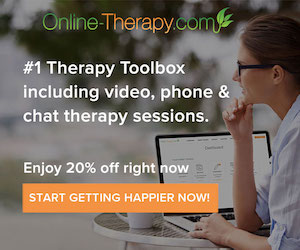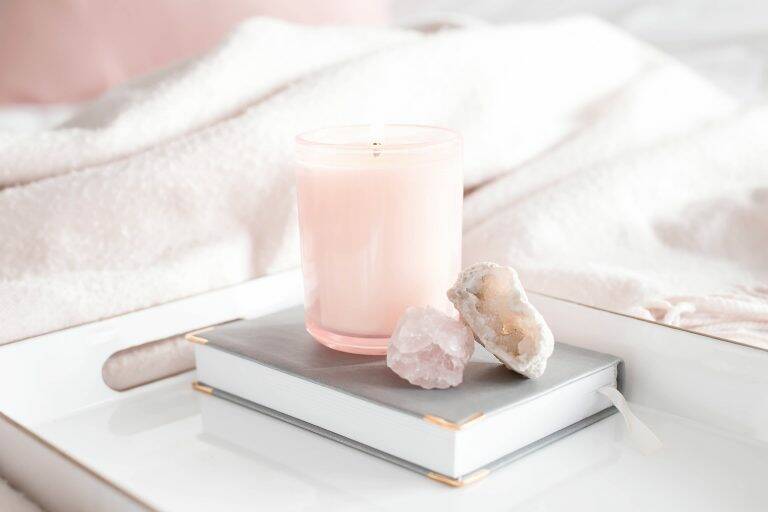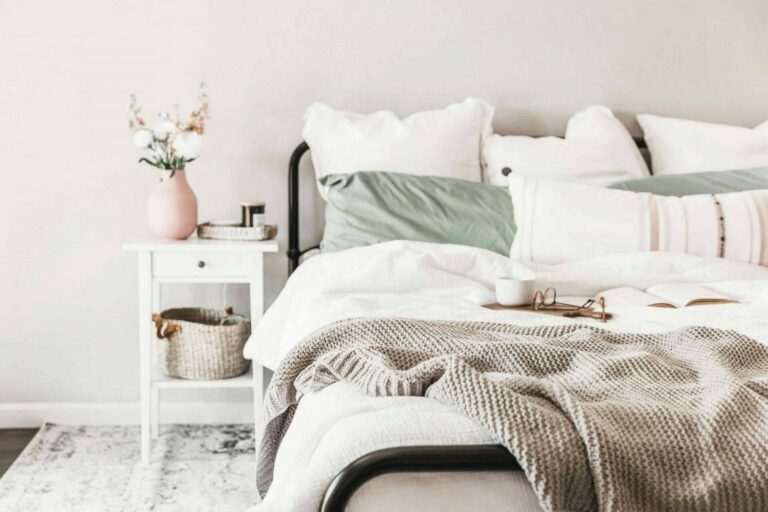How To Reduce Anxiety In Your Life: Science-Based
Want to know how to reduce anxiety?
Looking for natural ways to deal with anxiety in relationships, at work, or in your everyday life?
What is YOUR relationship with anxiety? Are you in the same large group of people that can’t control it?
Anxiety concerns way too many people around the world, and the number constantly grows and grows…
What if I told you that dealing with anxiety is a skill? A skill, or in fact, a combination of mini skills that totals to a big one. If we change our view on certain things, then automatically things change.
It may seem like an easy thing to say, and a hard thing to do in action, but it’s the plain hard truth we have to accept. It all comes down to our mindset.
Are you ready? Buckle up.
How does Anxiety Affect us?
Anxiety has the ability to interfere with anything our lives relate to. Work and career opportunities, school, social situations, such as meeting a new group of people or speaking in front of an audience, or just our normal everyday life.
It is necessary to learn how to cope with anxiety and the situations that cause it, in order to be able to function properly.
When we are under stress, our brain can’t work and this is backed by science. In times of serious stress, we under-function by about 80%, which means that we are prone to make more mistakes, and that means we lose more time, energy, and resources (physical and mental) to produce the same outcome.
In fact, our brains can’t learn in a stressful state. Although most of us, if not all, have learned from school and university to study under periods of stress and anxiety, this simply can’t happen.
Many parts of the brain that are associated with learning and accumulating knowledge, don’t function properly.
Also, our reflective mechanisms are decreased and in the long run, if the anxiety becomes chronic (6 months or more) can decrease our IQ, and in the long run, increase our chances of having Alzheimer’s and dementia. Lastly, another thing that stress lowers is our critical thinking. We lose our ability to follow tactics and tricks to reduce our anxiety.
Let’s say you have a school/work project you have to submit before the deadline ends. If you stress over it and think that you can’t finish it before the deadline, because of anxiety, your odds of working on the project in a productive way decrease by a lot.
Why does this happen?
When we are in a stressful condition, our bodies and brains think that we are in some form of under attack.
They can’t figure out the difference between the kinds of threats. They can’t filter them out and be like: “Oh, it’s a phone call from my boss” or “Oh, we are being chased by a hungry lion”. For the brain, both of these circumstances are the same.
This means that other secondary for our brains tasks are being put into the background or ignored. This leaves us with 3 options to deal with our “lion.”
- We stay and fight it.
- We run to save our lives.
- Or we completely freeze out.
This doesn’t help us at all to actually move forward and be productive in our work, or everyday life.
In some cases, we can’t even communicate clearly. Trembling, fear of talking, voice cracks, speaking way too fast, or not making any sense at all, are all being caused by anxiety.
But, anxiety as an emotion isn’t a bad thing. Yes, it can be beneficial to us.
Why Anxiety Is Beneficial To us?
When I say about dealing with anxiety or reducing it, I don’t mean eliminating it. That’s the wrong way of thinking about anxiety.
The goal isn’t to stop having anxiety, because, firstly this is very, and I mean very hard thing to accomplish, and maybe impossible to do, and the second reason is that stress and anxiety are important factors of human nature.
We need anxiety and stress, in the right amounts and at the right times, just not ALL the time.
As Susan David writes in her book Emotional Agility, we tend to think that all unpleasant emotions are “bad”.
Unpleasant emotions, such as anxiety, are still emotions and can be beneficial to us. They work as reminders. They exist to remind us that something has to change, that we do something wrong or some things are just normal.
You can’t be happy when something sad happens to you, and you can’t fake force yourself to be.
The same things apply to anxiety. It is totally normal to experience some sort of anxiety when you have to give a speech in front of a big crowd, or when you’ve got to confront your boss.
Time will pass either way. It’s in our hands what we’ll do with it.
Dealing with anxiety is a skill that takes practice to master, but it’s totally doable.
How To Reduce Anxiety?
I’ll break it up into two segments. The first segment is about what you can do when you experience anxiety, and the second one is about lifestyle changes to consider implementing into your daily routine, in order to prevent anxious situations and to be prepared for one.
Things to do when you experience anxiety
You are in a stressful environment, and you feel anxious, what do you do? Here are 3 techniques you can implement starting right now, so that the next time you get hit by anxiety, you’ll know how to respond:
1. Talk About It or Express It.
The thing that I’ve noticed over the years is that the more we let ourselves take the anxiety out of our system (whether it be talking to a friend, or crying out), the less possible it is to have an anxiety attack.
That’s why many times I’ve seen people and friends of mine who get anxious regularly, have no symptoms, and people who I thought were never stressed out and anxious about anything, eventually blow up from anxiety because they hid it.
2. Breathing Techniques/ Exercises.
When we breathe through the nose, air tends to go to the stomach. This type of breathing puts us in a calming state of mind, just like when we meditate. When we breathe and the air goes through our chest, this type of breathing is for situations where we need alertness.
So when we want to calm ourselves from anxiety, a simple trick is to make our stomachs full of air. Essentially, this signals to the heart that everything is fine, there aren’t any hungry lions around chasing us. Afterward, the heart sends this signal to the whole body and calms it.
3. Look out for 3 things around you.
When you feel you’re under a serious amount of pressure and you feel that you’re getting anxious, stop for a minute and look around for 3 things in the space you are currently.
If you get stressed when you are stuck at a red light, stop for a moment, take a deep breath, and search for 3 things around you.
This tells your brain that this is not a permanent situation and that it will pass. This wakes up your brain telling it that you’re fine and that you’re not gonna be eaten by a lion.
Things To Do Before You Experience Anxiety
The best way to reduce anxiety is actually to prevent it from experiencing it in the first place. Start with evaluating your lifestyle. What routines you do/have might be possible sources of stress?
Then try to eliminate them. Sometimes though, this may not be possible. You may get stressed out at work, but you can’t just quit, right? You have a family to feed, I understand. So here are 4 proven ways to reduce stress, and therefore, anxiety:
1. Fix your sleeping schedule
Fixing your sleeping patterns should be obvious enough, but for my fellow night owl readers, I’ll explain it to you. The whole body’s ability to function properly depends on our sleeping quality and quantity.
For our brains to tell the difference between the phone call from our boss and the hungry lion, it needs proper rest. Another reason why sleeping well is a huge factor in reducing stress and anxiety? When we are under stress, our bodies can’t sleep. So, a vicious cycle of stress, anxiety, and low quality of sleep is created.
The minimum amount of sleep a healthy individual should get every single day, or at least most days, is 6-8 hours, when 6 is the bare minimum, as the World Health Organization suggests.
2. Exercise
Exercise is the primary weapon we can have in our arsenal in terms of reducing anxiety. When we exercise, the body releases endorphins (the “happy” hormone), and this literally decreases the level of stress and anxiety.
Biologically, it’s the best way of dealing with anxiety and the best counter-attack to the many negative side-effects anxiety causes.
Anxiety can make us age faster, lose our intelligence, as we covered earlier, can make us sick more frequently, etc, with exercising we can manage these things in a healthy way.
Exercise is associated with better sleep, better, healthier decisions about food, and overall better quality of life.
If you dread the word “exercise”, I have some good news for you. Even a 30-minute walk daily can help increase heart rate and lower cortisol (the “stress” hormone).
3. Eat Healthy And Be Mindful About It
I bet that most of you eat way too fast, you don’t chew your food long enough, the time you’re eating you may be binge-watching Netflix, a series on TV, maybe you’re scrolling through Facebook and Instagram, whatever it is. I’m so confident about my bet because I’m guilty of this too.
During digestion, there is a phase that’s called Intestinal Phase and it is equivalent to 30-40% of metabolism. In short term, food doesn’t go only through the mouth and stomach but goes to the brain too.
But, if we’ve eaten too quickly and didn’t enjoy our food because we didn’t even see it, we were doing something else at that time, our brains don’t register the food we just ate. The result is that the metabolism underfunctions as well, valuable nutrients don’t even register, and our brains crave more food.
What is the relationship between food and stress and anxiety?
When we eat, we breathe through the nose. When we eat vigorously, don’t focus on food, and don’t breathe correctly (we breathe fast and/or not at all), we give a signal to our brain that we are under some form of attack, so the brain produces the stress hormone cortisol and we get anxious.
A simple way to deal with this problem is to be mindful when we eat. Don’t be on your phone, don’t scroll through Social Media, and breathe regularly.
If you struggle with chronic anxiety and any of the above tips and suggestions don’t help you, seek out advice from a professional.
Online Therapy offers the most complete therapy toolbox online. Their features include a personal therapist, activity plan, worksheets, journal, live chat, yoga, and more. Cognitive behavioral therapy is just as effective as face-to-face therapy sessions. You can learn more by clicking here!
Stress and anxiety are parts of human nature, we can’t eliminate them. But, learning how to reduce them and manage them in a healthy way is an essential skill, or a combination of mini skills, to live the life that YOU deserve.
Remember that, like with every other skill, it takes time, patience, and consistency to master, but it is going to be worth it in the end, I promise.







